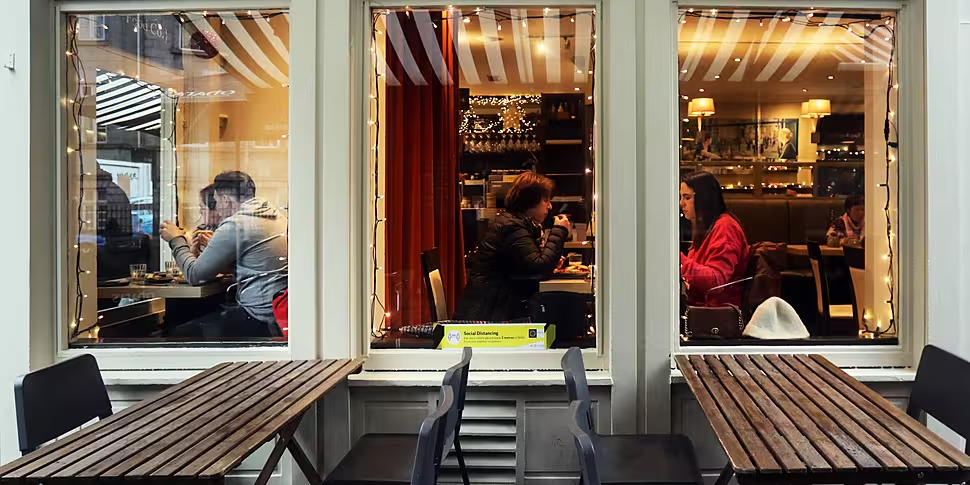New guidelines for re-opening the hospitality sector are neither simple nor sensible, Kingston Mills has said.
The professor in experimental immunology at Trinity College Dublin (TCD) was responding to the guidelines published by Fáilte Ireland on Wednesday.
He told Pat Kenny the way the rules have been structured make them harder to implement.
"My impression is that it's over-complicated - if you want to try and enforce something like this, it has to be simple and sensible.
"And it doesn't sound like it's either simple or sensible to me".
He said outdoor activity is much safer than indoor "and it's vey hard to make any sense out of one metre is safe versus two if you stay a certain length of time, for example.
"So there are a whole lot of points in the recommendations which don't seem to be based on sound science."
He also said he has "concerns" about 15 people at one table, whether or not they are under 13 years of age.
While there have already been calls for changes to the guidelines.
The head of the Restaurants Association Adrian Cummins has said they will implement them, for now.
"Everything that we expected, based on the media reports, is in the guidelines", he said.
"There will be an issue around the 105 minutes for businesses, this issue around one metre/two metres - that is going to affect a substantial number of businesses.
"The guidelines are out there, we can start to amend them as we get re-opened, and we can start negotiating with Government.
"We want to get our doors open and get up and trading, that's the most important thing now".
But he said generally speaking, opening a small business with a two metre gap between tables "isn't viable".
Older people and the Indian variant
Prof Mills said an increase in the Indian variant here would also produce new challenges.
"We have a variant potentially on our doorstep - what they call the Indian variant - is a concern because it's more transmissible than even the B117, the UK variant.
"If that becomes the prevalent virus in Ireland, then there's a new ballgame."
He also quoted a UK study, which showed that a single dose of Pfizer or AstraZeneca gave 33% efficacy against the Indian variant.
"Whereas, after two doses, the Pfizer vaccine gave 88% efficacy and the AstraZeneca 60% - so a big difference there between the two vaccines... and a big difference between one or doses."
He also noted that "we've a good bit to go in terms of getting two doses to everybody".
But he said this could be an issue for older people.
"The problem is that we have vaccinated our 60 to 70 age group with exclusively the AstraZeneca vaccine.
"We have said that they have to wait - I don't know if it's 12 or 16 weeks - to get the second dose.
"So they're in limbo because they've [been] given a vaccine, which even with two doses, is not going to be up the level of mRNA vaccines, and they're a vulnerable age group".









